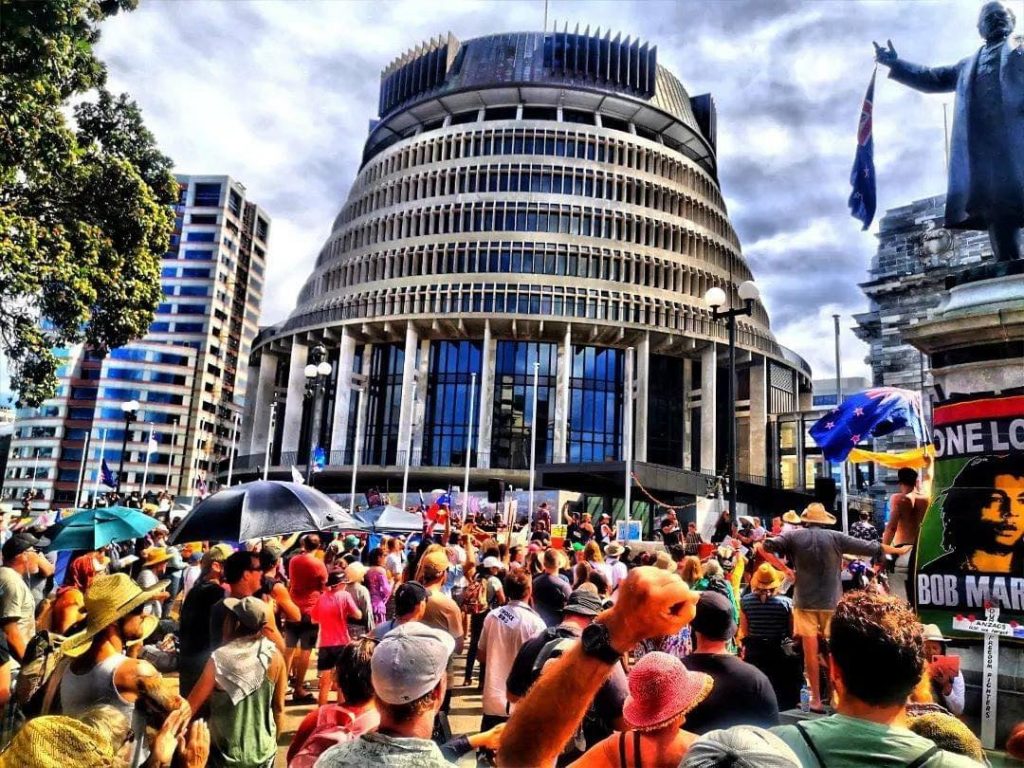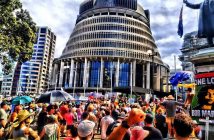In the last election, more than 200,000 New Zealanders’ votes did not count toward the final result – an independent review is expected to call for changes which will give more people a voice in parliament

The discussion and debate of different views are a healthy part of democracy, so when some views are not represented in parliament, this can give rise to unrest and division. Last year’s month-long protest outside parliament may be a sign of things to come unless there is reform to our electoral system.
Of the 2,886,427 votes cast in the 2020 election, 225,190 of those went to parties which failed to meet the 5% threshold to get into parliament. That is more than the entire population of Wellington City without a party to represent them in the Beehive.
The Independent Electoral Review is set to put forward a package of recommendations to the Government in November. In its interim report, one of those recommendations is to lower the party vote threshold to 3.5% from the 5% threshold which was set when New Zealand’s population was much smaller.
“Lowering the threshold will broaden representation by allowing more minor parties into parliament, while still allowing for the formation of stable parliaments and effective governments,” the review panel says.
However, a 3.5% threshold would not have made a material difference in the last election, so perhaps there is an argument to take this proposal further and lower it more substantially, or abolish the threshold altogether.
Either way, more people will vote for their favoured party if there is a higher chance of them getting into parliament, giving us greater representation and a more democratic parliament.
In conjunction with this, the review also recommends abolishing the one-electorate seat threshold.
“Currently, a party that wins an electorate is entitled to its share of list seats as well, even if it did not meet the party vote threshold. We have concluded that this gives voters in some electorates more say than voters in other electorates about which parties get represented in parliament,” the panel says.
It also speaks about overhang seats, where if a party wins more electorate seats than its share of the party vote would otherwise have entitled it to.
“When this happens, that party keeps all the electorate seats it has won, but the number of list seats allocated to other parties is increased until the next election. This keeps parliament in proportion to the party vote. We recommend removing these extra seats for other parties. Instead, fewer list seats should be allocated. We only recommend this change in conjunction with removing the one-electorate seat threshold so as to limit the number of overhang seats.
“We [also]propose fixing the ratio of electorate and list seats at 60:40 with an additional proviso that the size of parliament should always be uneven to avoid hung parliaments. The effect of this recommendation would be that parliament would increase gradually in size over time in proportion to changes in our population.”
The review also makes recommendations around funding, including a cap of $30,000 on private donations and $500 on anonymous donations.
“We [also]recommend that only individuals on the electoral roll should be able to loan or donate to parties and candidates. All entities, whether trusts, companies, trade unions, iwi, hapū, or unincorporated societies should be prohibited from providing funding.”






